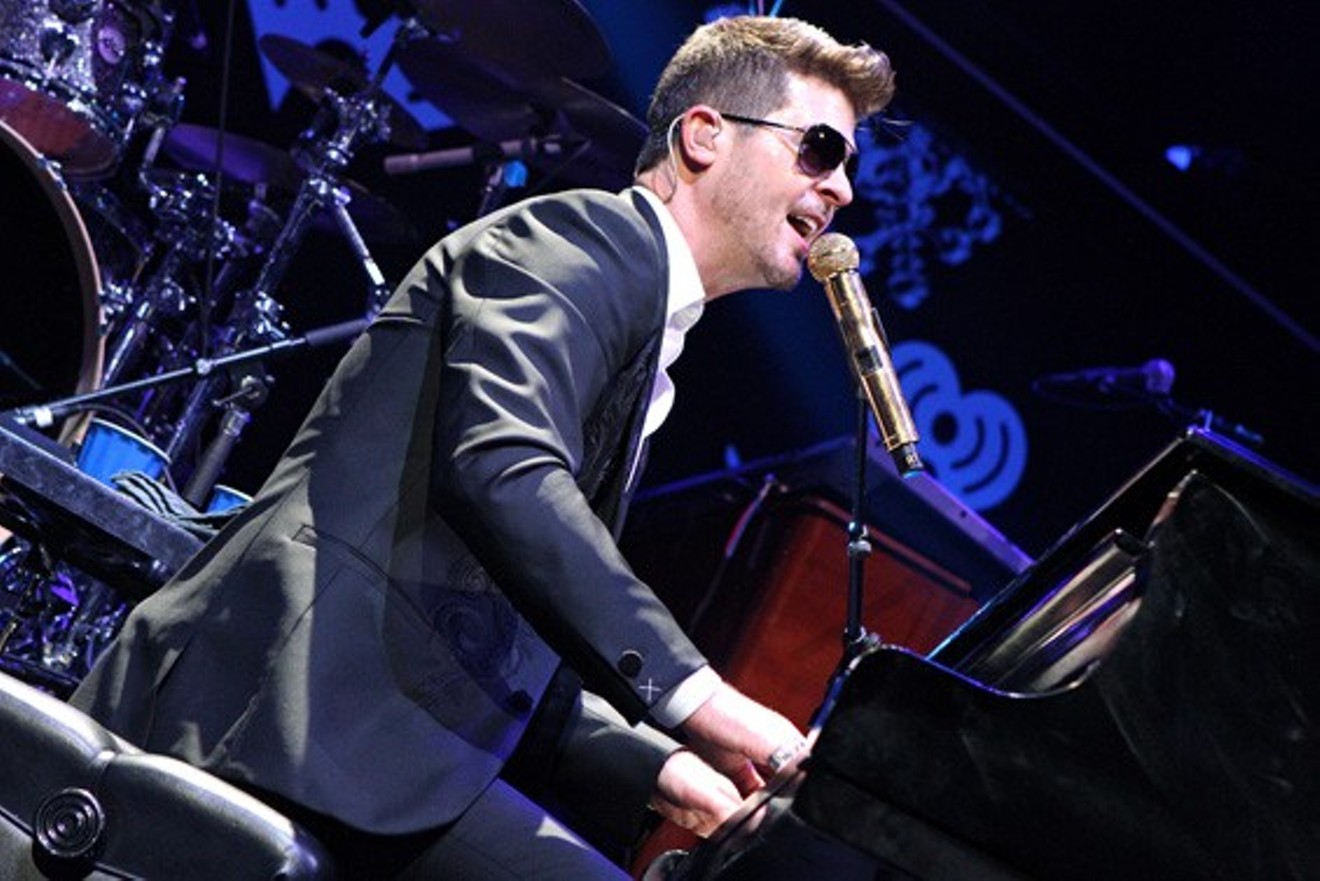If you’re a musician and are not worried that a court recently upheld the verdict on “Blurred Lines,” you should be.
In 2015, after a couple of years of back-and-forth lawsuits, Marvin Gaye’s family won a copyright infringement lawsuit against Robin Thicke and Pharrell Williams. The Gaye family believed Thicke’s megapopular single “Blurred Lines” stole from Marvin Gaye’s “Got to Give It Up.” Gaye's family won $7.4 million in damages, but the songwriters appealed the verdict in the 9th U.S. Circuit Court of Appeals.
Thicke and Williams lost last week. A ruling of 2-1 upheld the verdict. Judge Jacqueline H. Nguyen voted against the Gaye family, writing in a statement that the verdict “allows the Gayes to accomplish what no one has before: copyright a musical style.” Even worse, this “establishes a dangerous precedent that strikes a devastating blow to future musicians and composers everywhere,” she wrote.
What should you be concerned about as a musician? Plenty. Apparently inspiration is subject to lawsuit, no matter which key your song is in or which chords you use. With litigious songwriters in a music industry that’s having a hard time making as much money as it used to, this is a big problem. Now a style is up for debate in terms of copyright.
In the case of “Blurred Lines,” there were definite similarities to “Got to Give You Up,” but it seemed more of a tribute than a rip-off. Yes, there’s a cowbell and a high falsetto set to a moving groove, but people have hotly debated the topic for years.
J. Michael Keyes, a partner at law firm Dorsey & Whitney in its California office, has plenty of experience in cases involving copyrights, trademarks and false advertising.
“Upholding the jury’s verdict [and the ultimate damage award] could very well mean we see a new wave of additional music infringement lawsuits and claims,” he says through his publicist. “The 9th Circuit majority decision was quite explicit in opining that musical works receive broad protection and that ‘there is no one magical combination of factors that will automatically substantiate a musical infringement suit.’ That standard is rather noteworthy and leaves quite a bit of play in the joints for future litigants to cobble together a music infringement claim. In fact, as the dissenting opinion points out, the majority decision seems to give copyright protection to a ‘musical style’ as the two works ‘differ in melody, harmony, and rhythm.’”
Danny Balis, bass player for local group Bastards of Soul, has played enough Marvin Gaye songs to understand the difference.“As long as the chords and melodies are different, it’s not infringement. These jurors need to take a fucking music class.” — Chris Holt
tweet this
“I don't see a comparison enough to say Thicke was stealing this,” he says. “Similar groove, sure. Similar bass line, yep. Melody/hook is completely different, which should be the deciding factor when ruling in these cases, seeing that the lyric/vocal/melody is always the dominating element when it comes to deciding royalties in related suits.”
Balis believes pure copyright infringement comes from one of three factors: lyrics are taken verbatim, samples from the original recording are used or a melody is copied note for note through most of the song.
“Other than that, this area is too grey... . I just don't see how this is literal stealing," he says. "There are only so many listenable melodies and grooves out there, and invariably, someone is going to accidentally fall in that grey area where something sounds like something else when writing original music.”
Similar lawsuits have been filed for decades. George Harrison was once successfully sued for his “My Sweet Lord” song because it had vocal melodies similar to the Chiffons’ hit “He’s So Fine.” The Flaming Lips’ "Fight Test" sounded similar to Cat Stevens' "Father and Son," so a settlement was agreed that the songwriters of both songs would split the royalties.
One has to wonder what will happen next. Does Barry Gibb have the opportunity to sue the songwriters of Britney Spears’ “Oops . . . I Did It Again,” given its similar melody to Gibb’s “Woman in Love,” popularized by Barbra Streisand? Does Bruce Springsteen think Spears’ “Lucky” has enough in common with his “Hungry Heart” for a lawsuit? Does Brenton Wood think he can sue Mayer Hawthorne because “The Walk” sounds a bit too much like “Baby You Got It”? The list goes on and on.
Chris Holt, who plays with Don Henley and Bastards of Soul, has ranted about the “Blurred Lines” lawsuit for years to friends and journalists, calling it “an homage that was wrongly convicted.”
“There’s no actual harmonic theft," he says. "It’s just a groove and a bass line and a vocal delivery paying a clear debt to a classic without actually infringing. You can’t even pay tribute to a sound anymore because that’s not safe, either."
Producers and songwriters have to be careful.
“As long as the chords and melodies are different, it’s not infringement,” Holt adds. “These jurors need to take a fucking music class.”












